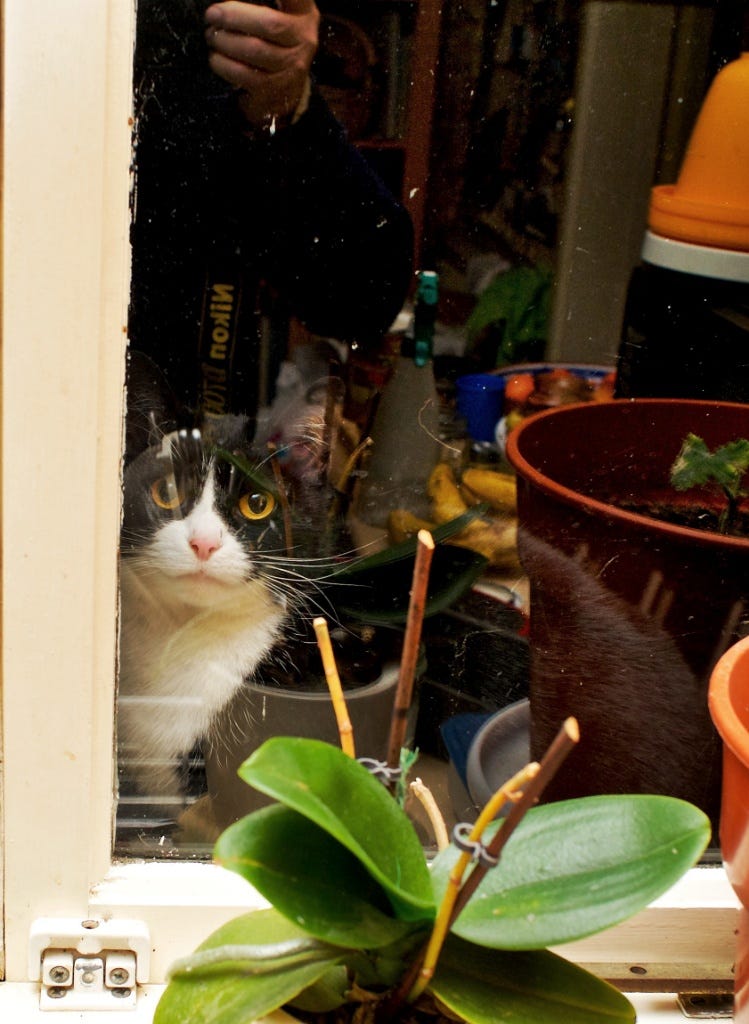A year is a long time, sometimes
Our beloved cat, Zoombini, passed away a year ago today. Hardly a day goes by when I don’t think of her. What made her remarkable was the extent to which she craved human contact, and how communicative she could be. Every time we sat down to eat she would suddenly appear from wherever she was in the house and stand on the floor looking up at us reproachfully. In the end my wife and I gave in and set up a high stool between us at the table so she could sit as part of the company. She didn’t want food but simply to be part of what was going on.
I have dozens of lovely photographs, and a few videos, of her. This is technically a terrible picture but I love it because it captures something of her essence. It was taken on a winter’s night; she had been sitting outside the back door declining to use the cat flap and complaining loudly. Normally I would give in and open the door, after which she would regally strut in — having established her precedence over a mere servant. But that evening I felt cussed and stood my ground, and eventually she appeared on the kitchen windowsill wearing this expression of amazed puzzlement at my rank disobedience!
Quote of the Day
”It is sobering to consider that when Mozart was my age he had already been dead for a year.”
Tom Lehrer
Musical alternative to the morning’s radio news
Schumann | Fantasiestücke op.73 | Jacqueline Du Pré & Gerald Moore
Long Read of the Day
‘Homo sapiens is an obsolete algorithm’
2016 essay by Yuval Noah Harari outlining a key argument of his second best-seller, Homo Deus: A Brief History of Tomorrow on how ‘dataism’ would become the new universal religion. I enjoyed the book but was less impressed by it than I was by Sapiens — the logical conclusion of which is that humans weren’t such a good idea after all.
There’s an emerging market called Dataism, which venerates neither gods nor man – it worships data. From a Dataist perspective, we may interpret the entire human species as a single data-processing system, with individual humans serving as its chips. If so, we can also understand the whole of history as a process of improving the efficiency of this system, through four basic methods…
My commonplace booklet
Ayn Rand on The Tonight Show with Johnny Carson | August 1967
Wow! This was an unexpected find. I hadn’t ever seen her in action. And I like her even less now. I’ve often wondered how she managed to attract so many disciples — some of them very powerful and influential. For example, Alan Greenspan. And lots of folks in Silicon Valley.




